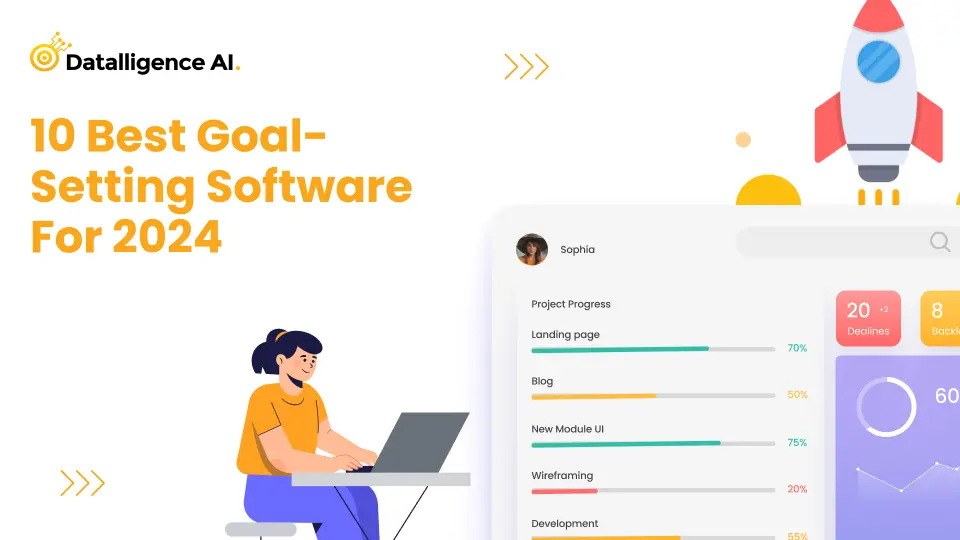In today’s rapidly evolving business landscape, organizations face numerous challenges when it comes to making critical decisions that impact their growth and success. This is where strategy consulting comes into play. Strategy consultants, often referred to as business strategy consultants, offer valuable insights and expertise to help businesses navigate complex issues, optimize their operations, and achieve their goals.
In this comprehensive guide, we will delve into the world of strategy consulting, exploring its definition, types, benefits, required skills, and the top firms in the industry. Whether you’re a budding consultant or a business owner seeking guidance, this guide will provide you with the knowledge and insights needed to harness the power of strategy consulting and drive your organization toward sustainable success.
What is Strategy Consulting?
Strategy consulting is a specialized field within management vs strategy consulting that involves providing organizations with expert advice and guidance on high-level strategic decisions. Business strategy consultants work closely with executives and senior management to understand their goals, analyze market trends, identify challenges and opportunities, and develop strategic plans to achieve sustainable growth and competitive advantage.
Definition and Scope
Strategy consulting encompasses a wide range of disciplines and areas of expertise. Consultants may assist organizations in formulating corporate strategies, optimizing operations, entering new markets, managing change, and driving innovation. They leverage their deep industry knowledge, analytical skills, and strategic thinking to help businesses make informed decisions and navigate complex business challenges.
Types of Strategy Consulting
Strategy consulting can be categorized into various disciplines, each addressing specific organizational needs. Some common types of strategy consulting include:

- Corporate Strategy: Advising on strategic goals, vision, and expansion plans.
- Organizational Strategy: Optimizing organizational structures and processes.
- Operations Strategy: Aligning operations with overall business strategy for efficiency and cost-effectiveness.
- Business Model Transformation: Guiding companies through digital transformation and innovative business models.
- Mergers and Acquisitions: Assisting with evaluation, integration, and strategic decision-making.
- Digital Strategy: Harnessing digital technologies and data for business growth.
- Functional Strategy: Optimizing specific business functions such as finance, marketing, and HR.
- Economic Policy: Analyzing economic trends and advising on strategies to navigate regulatory environments.
In the following sections, we will explore the role of strategy consultants in depth and discuss the benefits they bring to organizations.
The Role of Strategy Consultants
Why Organizations Use Strategy Consultants
Organizations often turn to strategy consultants for several reasons. Firstly, consultants offer an external, unbiased perspective. They bring a fresh set of eyes to the table and can objectively analyze business challenges and opportunities without being influenced by internal politics or biases. This objectivity enables consultants to identify innovative solutions and offer strategic recommendations that executives may have overlooked.
Secondly, strategy consultants possess deep industry knowledge and expertise. They have worked with a diverse range of clients across various sectors, allowing them to understand industry trends, best practices, and emerging opportunities. Their insights and experience equip them with the ability to identify market gaps, assess risks, and design tailored strategies to help businesses achieve their goals.
Advantages of Strategy Consulting
Engaging strategy consultants can yield numerous benefits for organizations. Here are some key advantages:
- Unbiased Insights: Strategy consultants provide independent and objective analysis, free from internal biases or preconceptions. They challenge the status quo, ask critical questions, and offer unbiased insights that can lead to breakthrough strategies.
- Fresh Ideas and Innovation: Strategy consultants bring a wealth of experience and knowledge from working with various clients. They introduce new ideas, innovative approaches, and best practices from different industries, inspiring organizations to think creatively and explore new avenues for growth.
- Enhanced Decision-Making: With their deep analytical skills and strategic thinking, consultants help organizations make better-informed decisions. They conduct thorough research, analyze data, and provide fact-based recommendations, enabling executives to make strategic choices with confidence.
- Access to Industry Expertise: Strategy consultants possess specialized knowledge and expertise in specific industries or functional areas. This knowledge allows them to offer insights and recommendations tailored to the unique challenges and opportunities faced by organizations operating within those sectors.
- Faster Results: Strategy consultants are focused on delivering results within a defined timeframe. They bring a structured approach, proven methodologies, and project management skills to ensure efficient execution of strategic initiatives. This enables organizations to achieve their goals faster and stay ahead of the competition.
In the next section, we will explore the skills and qualifications required to excel in the field of strategy consulting.
Skills and Qualifications for Strategy Consultants
Strategy consulting requires a unique blend of skills and qualifications to effectively analyze complex business problems, develop strategic recommendations, and engage with clients at the highest levels. Here are some essential skills and qualifications for aspiring strategy consultants:
Analytical Skills
Analytical skills are critical for strategy consultants, as they involve collecting and analyzing vast amounts of data to identify trends, draw insights, and make informed recommendations. Consultants must be proficient in quantitative analysis, data interpretation, and modeling techniques to drive evidence-based decision-making.
People Skills
Effective communication and strong interpersonal skills are vital for strategy consultants. They work closely with clients, senior executives, and cross-functional teams, requiring the ability to build relationships, influence stakeholders, and navigate complex organizational dynamics. Consultants must be adept at active listening, clear articulation of ideas, and persuasive presentation skills.
Time Management
Strategy consultants often work on multiple projects simultaneously, each with its own deadlines and deliverables. Effective time management is crucial to ensure that all projects are completed on time and to the highest standards. Prioritization, organization, and the ability to work under pressure are essential skills for success in a fast-paced consulting environment.
Flexibility
Strategy consultants operate in dynamic and rapidly changing business environments. They must remain adaptable and flexible in response to evolving client needs, emerging market trends, and shifting project requirements. The ability to quickly assimilate new information, pivot strategies when necessary, and embrace change is crucial for consultants to thrive in their roles.
While possessing these skills is necessary for a career in strategy consulting, obtaining the appropriate education and qualifications is also essential. In the following section, we will explore the common educational paths and qualifications for aspiring strategy consultants.
Strategy Consulting Firms: The Big Players
The strategy consulting industry is home to several prominent firms, each offering unique expertise and services to support organizations in their strategic decision-making processes. Let’s take a closer look at some of the top strategy consulting firms:
The Big Three: McKinsey & Company, Boston Consulting Group, Bain & Company
The Big Three—McKinsey & Company, Boston Consulting Group (BCG), and Bain & Company—are widely recognized as the leading strategy consulting firms. These firms have established a strong reputation for delivering high-quality strategic advice to clients across industries. They have a global presence and work with some of the world’s largest and most influential organizations.
McKinsey & Company: McKinsey & Company is a global management consulting firm that advises organizations on strategic issues, operational challenges, and transformational initiatives. They focus on driving long-term sustainable growth and have a diverse range of practices spanning various industries.
Boston Consulting Group (BCG): BCG is a leading management consulting firm with a strong emphasis on strategy. They work closely with clients to develop innovative solutions, drive organizational change, and create a competitive advantage. BCG is known for its rigorous analytical approach and thought leadership in the field of strategy consulting.
Bain & Company: Bain & Company is a global consultancy known for its expertise in strategy, performance improvement, and results delivery. They collaborate closely with clients to develop tailored strategies and help organizations achieve their goals. Bain & Company is recognized for its client-centric approach and commitment to delivering measurable impact.
Pure-Play Strategy Consulting Firms
In addition to the Big Three, there are also several pure-play strategy consulting firms that focus exclusively on strategy consulting services. These firms may specialize in specific industries or offer expertise in niche areas of strategy development. Some noteworthy pure-play strategy consulting firms include:
- Roland Berger
- Oliver Wyman
- A.T. Kearney
- Strategy&
- Marakon
Professional Services Firms with Strategy Practices
Professional services firms, such as Deloitte, EY, PwC, and KPMG, also have dedicated strategy consulting practices. These firms offer a comprehensive range of services, including strategy development, operational improvement, digital transformation, and risk management. Their strategy practices leverage the broader capabilities of the firms to provide integrated solutions to clients.
It’s important to note that the strategy consulting landscape is continuously evolving, with new players and niche firms emerging. Aspiring consultants should stay abreast of industry trends and explore opportunities beyond the traditional players.
In the following section, we will discuss the pathways to entering the field of strategy consulting.
Getting into Strategy Consulting
Entering the field of strategy consulting requires a combination of education, experience, and a strong skill set. Here are some key steps to help you embark on a career in strategy consulting:
Education and Qualifications
While there is no single educational path to becoming a strategy consultant, a strong academic foundation is essential. Most firms prefer candidates with undergraduate degrees in business, economics, engineering, or related fields. Some consultants pursue advanced degrees, such as MBAs, to deepen their knowledge and enhance their career prospects.
Additionally, obtaining relevant certifications and qualifications can demonstrate your commitment to professional development and add value to your resume. Consider pursuing certifications in areas such as project management, data analysis, or industry-specific domains to enhance your skill set.
Gaining Work Experience
Work experience is crucial for aspiring strategy consultants, as it demonstrates your ability to apply theoretical knowledge in real-world business contexts. Seek internships or entry-level positions in consulting firms, corporate strategy departments, or related roles to gain practical experience and develop your understanding of the consulting industry.
Networking is also an essential component of building a successful career in strategy consulting. Attend industry events, join professional associations, and connect with experienced professionals to expand your network and gain valuable insights into the field.
Case Study Interviews and Assessment
Case study interviews are a common part of the recruitment process for strategy consulting roles. These interviews assess your problem-solving skills, analytical thinking, and ability to communicate complex ideas. Prepare for case interviews by practicing with sample cases, familiarizing yourself with frameworks, and honing your analytical and presentation skills.
In addition to case study interviews, firms may also use a combination of behavioral interviews, group exercises, and written assessments to evaluate candidates’ overall fit and potential.
In the next section, we will explore the future of strategy consulting and the impact of technology on the industry.
The Future of Strategy Consulting
The field of strategy consulting is constantly evolving, driven by advancements in technology, changing client needs, and emerging trends. To stay relevant and thrive in this dynamic landscape, strategy consultants must continually adapt and embrace new approaches. Here are some key factors shaping the future of strategy consulting:
Technology and Strategy Consulting
Technology is transforming the way businesses operate, and strategy consultants must keep pace with these changes. Artificial intelligence, data analytics, and automation are revolutionizing the consulting process, enabling consultants to quickly gather and analyze vast amounts of data, identify patterns, and generate actionable insights.
Consulting firms are investing in digital capabilities and acquiring specialized technology firms to enhance their offerings. These investments enable consultants to leverage advanced analytics, predictive modeling, and machine learning algorithms to provide more accurate and data-driven recommendations to clients.
Evolving Strategies to Stay Relevant
As the business landscape becomes increasingly complex and volatile, organizations need to adopt agile strategies that can adapt to changing market dynamics. Strategy consultants play a vital role in helping companies develop flexible strategies that balance long-term goals with short-term adaptability.
Consultants are also focusing on areas such as sustainability, diversity and inclusion, and social impact, as these factors become integral to organizational success and reputation. As businesses face growing pressure to address environmental and social challenges, strategy consultants are guiding organizations in incorporating sustainability practices into their strategies and operations.
In the following section, we will explore real-world case studies to illustrate the impact of strategy consulting on business success.
Case Studies: Real-World Examples
To understand the tangible impact of strategy consulting, let’s examine a few real-world case studies that highlight how organizations have leveraged strategy consultants to overcome challenges and achieve remarkable success.
Industry-Specific Strategy Consulting
In the healthcare industry, a leading pharmaceutical company sought assistance from a strategy consulting firm to develop a growth strategy for its portfolio of drugs. The consultants conducted a comprehensive analysis of the company’s pipeline, market trends, and competitive landscape. Based on their findings, they recommended a targeted approach to product development, focusing on high-potential therapeutic areas and optimizing the company’s R&D investments. The strategy resulted in accelerated drug development, improved market positioning, and increased revenue for the pharmaceutical company.
Impact of Strategy Consulting on Business Success
A technology startup aiming to disrupt the e-commerce industry engaged a strategy consulting firm to refine its business model and develop a scalable growth strategy. The consultants conducted market research, analyzed customer preferences, and identified key market trends. They recommended a multi-channel approach, leveraging digital marketing, partnerships, and innovative customer experience initiatives. The strategy enabled the startup to rapidly expand its customer base, increase market share, and secure significant funding from investors.
These case studies demonstrate how strategy consulting can lead to tangible outcomes, driving business growth, and competitive advantage. The expertise and insights provided by strategy consultants can be transformative for organizations across industries.
In the next section, we will discuss the differences between strategy consulting and management consulting.
Strategy Consulting vs. Management Consulting
While strategy consulting is a subset of management consulting, there are distinct differences between the two. Understanding these differences can help clarify the scope and focus of strategy consulting engagements.
Understanding the Differences
Management consulting encompasses a broader range of services and focuses on improving overall organizational performance. It involves advising clients on various aspects, including strategy, operations, finance, human resources, and technology. Management consultants often work on the implementation of strategies and operational improvements, whereas strategy consultants primarily focus on strategic decision-making and long-term planning.
In contrast, strategy consulting specifically addresses high-level strategic issues, such as market positioning, growth strategies, and competitive advantage. Strategy consultants provide expert insights, conduct market research, and develop strategic recommendations to guide organizations in making critical decisions.
While the lines between strategy consulting and management consulting can sometimes blur, the distinction lies in the level of focus and specialization. Strategy consultants bring a deep understanding of strategic frameworks, industry trends, and competitive dynamics, enabling them to provide targeted advice on strategic issues.
In the following section, we will explore the art of strategy development and the key steps involved in the process.
The Art of Strategy Development
Strategy development is a complex and iterative process that requires careful analysis, critical thinking, and effective collaboration. Successful strategy development involves the following key steps:
- Define the Strategic Objective: Clearly articulate the organization’s strategic objective, whether it’s growth, market expansion, cost reduction, or innovation. This objective provides a guiding framework for the strategy development process.
- Conduct a Situation Analysis: Conduct a comprehensive analysis of the internal and external factors that impact the organization’s performance. Assess the organization’s strengths, weaknesses, opportunities, and threats (SWOT analysis) to identify strategic gaps and potential areas for improvement.
- Define the Target Market: Determine the target market or customer segment that aligns with the organization’s strategic objective. Understand the needs, preferences, and behaviors of the target market to inform strategic decision-making.
- Develop Strategic Alternatives: Generate a range of strategic alternatives that address the organization’s strategic gaps and leverage its strengths. Consider different scenarios, such as market entry strategies, product diversification, partnerships, or acquisitions.
- Evaluate and Select the Best Strategy: Evaluate each strategic alternative based on its feasibility, alignment with the organization’s goals, potential risks, and expected outcomes. Select the strategy that offers the highest likelihood of success and aligns with the organization’s capabilities and resources.
- Develop an Action Plan: Develop a detailed action plan that outlines the specific steps, timelines, and responsible parties for implementing the chosen strategy. Define key performance indicators (KPIs) to track progress and measure the success of the strategy.
- Monitor and Adapt: Continuously monitor the implementation of the strategy and evaluate its effectiveness. Be prepared to adapt the strategy in response to changing market conditions, emerging opportunities, or unexpected challenges.
Throughout the strategy development process, strategy consultants play a crucial role in providing expert insights, facilitating strategic discussions, and ensuring that the strategy aligns with the organization’s goals and capabilities.
In the next section, we will explore the benefits of an outsider’s perspective in strategy consulting engagements.
The Benefits of an Outsider’s Perspective
One of the key advantages of strategy consulting is the ability to bring an outsider’s perspective to organizational decision-making. Consultants offer fresh insights, objectivity, and expertise that can significantly impact the quality of strategic decisions. Here are some benefits of leveraging an outsider’s perspective in strategy consulting engagements:
Unbiased Insights
Strategy consultants provide an unbiased perspective on an organization’s challenges and opportunities. Unlike internal stakeholders, they are not influenced by personal biases, office politics, or preconceived notions. This objectivity allows consultants to ask critical questions, challenge assumptions, and identify innovative solutions that may have been overlooked.
Fresh Ideas and Innovation
Strategy consultants bring a wealth of experience from working with diverse clients across industries. They possess a deep understanding of industry trends, emerging technologies, and best practices. This knowledge enables them to introduce fresh ideas, innovative approaches, and out-of-the-box thinking to the strategic decision-making process.
Enhanced Decision-Making
By leveraging their analytical skills and strategic thinking, consultants help organizations make better-informed decisions. They conduct thorough research, analyze complex data sets, and provide fact-based recommendations. This evidence-based approach enhances decision-making processes and increases the likelihood of successful outcomes.
Informed Risk Management
Strategy consultants assist organizations in identifying potential risks and developing strategies to mitigate them. Their deep industry knowledge and experience enable them to anticipate market dynamics, competitive threats, and regulatory changes. By incorporating risk management into the strategic decision-making process, consultants help organizations proactively navigate uncertainties and protect their interests.
In the following section, we will explore how organizations can maximize the value of strategy consulting engagements.
Maximizing the Value of Strategy Consulting Engagements
To maximize the value derived from strategy consulting engagements, organizations should consider the following best practices:
Collaboration and Communication
Open and effective communication is vital for successful strategy consulting engagements. Organizations should foster a collaborative environment, encouraging regular and transparent communication between consultants and internal stakeholders. This enables consultants to gain a deep understanding of the organization’s goals, challenges, and existing capabilities and ensures alignment throughout the engagement.
Implementing Strategic Recommendations
Strategy consulting engagements are only valuable if the recommended strategies are effectively implemented. Organizations should allocate appropriate resources, establish clear roles and responsibilities, and develop a detailed implementation plan. Regular monitoring and reporting mechanisms should be put in place to track progress, identify potential issues, and make necessary adjustments along the way.
Measuring Success and Iterating Strategies
Measuring the success of a strategy consulting engagement is crucial to assess the impact of the implemented strategies. Organizations should define key performance indicators (KPIs) that align with their strategic objectives and regularly evaluate progress against these metrics. When necessary, organizations should be willing to iterate and refine their strategies based on ongoing feedback and changing market dynamics.
By following these best practices, organizations can extract maximum value from strategy consulting engagements and drive sustainable business success.
In the final section of this guide, we will provide a comprehensive conclusion and summarize the key takeaways from our exploration of strategy consulting.
Conclusion: Empowering Business Success with Strategy Consulting
In today’s complex and rapidly changing business landscape, strategy consulting has become an indispensable tool for organizations seeking to navigate challenges, identify growth opportunities, and achieve long-term success. Strategy consultants bring a wealth of industry knowledge, analytical skills, and strategic thinking to help organizations make informed decisions and develop effective strategies.
Throughout this guide, we have explored the definition and scope of strategy consulting, the role of strategy consultants, and the skills required to excel in the field. We have also delved into the top strategy consulting firms, pathways to enter the industry, and the future of strategy consulting in the age of technology.
At Datalligence.AI, we understand the value and impact of strategy consulting on organizational success. Our team of experienced consultants leverages data-driven insights and cutting-edge technologies to deliver customized strategies that drive growth and create a sustainable competitive advantage.
Whether you’re a startup looking to disrupt the market or an established organization seeking to adapt to changing industry dynamics, our strategy consulting services can help you navigate complex challenges and unlock new opportunities. Get in touch with us today to embark on your journey towards strategic excellence.











